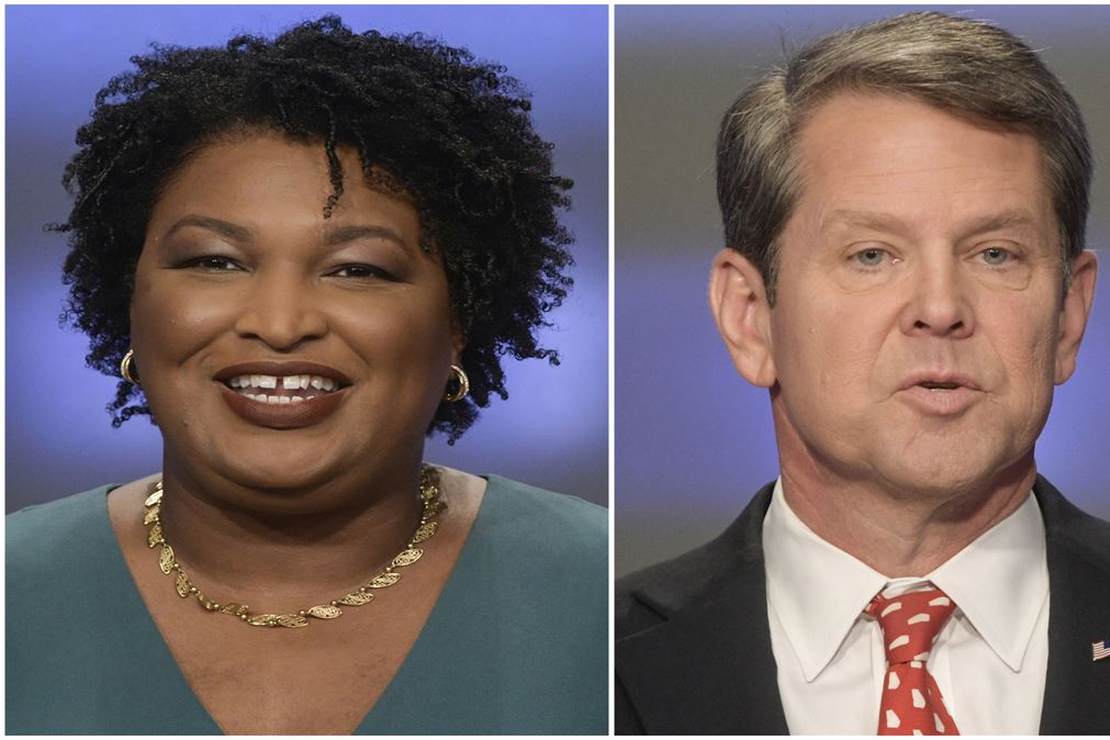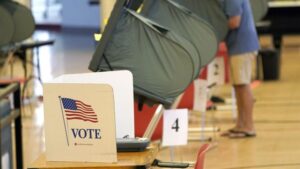The Georgia House went on the offensive on Thursday, pushing back against the CEO of Delta, Ed Bastian, who criticized the election security law passed and signed into law by Governor Brian Kemp. The Georgia House revoked Delta’s millions in tax credits before they adjourned for the year. Sadly, the Georgia Senate, led by Lieutenant Governor Geoff Duncan, failed to do the same before the body adjourned.
Delta is never going to abandon its Georgia hub because they have successfully prevented a regional airport like Midway in Chicago. Through predominantly Republican support for big business in the state, Delta has held the metro Atlanta hostage to the airport they practically own, despite the electorate’s preference for a regional option. Now, Delta bites the hand that feeds them, and Duncan did nothing. Another consideration for 2022.
The media narrative and President Joe Biden’s comments about this law are so wrong that even the Washington Post gave the president four Pinocchios. In an unexpected move, Governor Brian Kemp blasted the hit from Delta’s CEO in a public statement to WSB-TV in Atlanta. Unfortunately, that strong message was diluted by Duncan’s failure to act. However, it is also time to get real.
Woke Capital’s Virtue-Signaling on the Georgia Election Law May Come With a Steep Price
The only provision in the Georgia election bill no one is talking about is the one that activists, like Stacey Abrams and corporate CEOs, are truly upset about. It is also the one I insisted on in emails to every influential Georgia Republican after I read an article by PJ Media contributor J. Christian Adams. The so-called “Zuck Bucks” were admitted to in a fantastic article in Time magazine titled “The Secret History of the Shadow Campaign That Saved the 2020 Election.” The inequity they caused is outlined in this section of the declarations in the new Georgia law:
(6) Some counties in 2020 received significant infusions of grant funding for election operations, while other counties received no such funds. Promoting uniformity in the distribution of funds to election operations will boost voter confidence and ensure that there is no political advantage conferred by preferring certain counties over others in the distribution of funds.
To solve that inequity, Georgia lawmakers prohibited private funding of county election offices in the future as part of the new legislation. The grants, primarily funded by the Chan-Zuckerberg Foundation and distributed through the Center for Tech and Civic Life, went to Georgia counties that had disproportionate increases in turnout in 2020 over 2016. Of course, these same counties historically vote largely for Democrat candidates. Joe Biden only won the state by about 11,000 votes despite earning nearly 100,000 more votes than Hillary Clinton did in 2016 in the largest blue county in the state, Fulton County.
The Real Kraken: What Really Happened to Donald Trump in the 2020 Election
This fact may explain why Georgia was a highly contested state. The outcome made no sense if you live here unless you understood the “shadow campaign.” Unfortunately, attorneys Sydney Powell and Lin Wood filled the gap with fantastic tales about Dominion voting machines, Cubans, and Venezuelans. Georgia lawmakers got it right, and activists are far more upset about this provision than about not being able to hand out water bottles with “Blue Wave” on them. Republican voters could die of thirst in line, and none of these people would care, I promise.
How can Republicans in the state continue to go on the offensive, as the GOP House did, to combat this narrative? Here are some practical suggestions:
- Ask the question bluntly, “Why are organizations like Stacey Abrams’s Fair Fight concerned about having fewer ballots to “cure” because the new law requires ID for a no-excuse absentee ballot? It allows for confirmed election tallies faster. After 2020, receiving accurate election results in a timely fashion is critical. The ID requirement changes a subjective standard requiring signature matching to an objective one, an ID number on record with the state.”
- “The Republican administration will be happy to provide administrative personnel at the voter registration drives of any group organizing large events to ensure people obtain a free Georgia voter ID. All the organizers need to do is apply.” Then provide a link to do so and provide the staff authorized to issue free voter IDs.
- For Governor Kemp, “As governor of Georgia, I understand there are some hard cases for obtaining ID, such as those citizens who have trouble obtaining a copy of their birth certificate. We will work with organizations which represent those people to ensure they can obtain an ID to vote by 2022.” Then provide a process to do it.
- Finally, Governor Kemp needs to challenge Stacey Abrams, the darling of the leftist media, directly. “Forsyth County has by far the highest number of electors per precinct in the Atlanta metro area according to an analysis by NPR. The new legislation requires the county to address this by 2022. How can Fair Fight and the governor’s office work together to recruit poll workers so they can expand the number of precincts and reduce wait times? No one should have to stand in line long enough to require beverages and a buffet with Georgia’s expanded early voting, that includes additional weekend days, and absentee ballot drop boxes in the advance voting locations.”
Taking positions like these will force left-wing activists in the state to be part of the solution for the problems they present or just continue to complain. In reality, the biggest fear of Democrat activists like Stacey Abrams is that they will lose in future elections the significant impact “Zuck Bucks” had in places like Fulton County on Election Day 2020. They understood and amplified the insane assertions of Powell and Wood to discourage Republicans from voting in the January run-offs. Georgia is not blue, and they know it.
And Georgia Democrats do not want to have to explain losses in 2022 after being the cause to celebrate in 2020. Forcing them to address the problems they raise with the new law, which are minimal at best, will force them to face the fact they called the game at the end of the first half.






